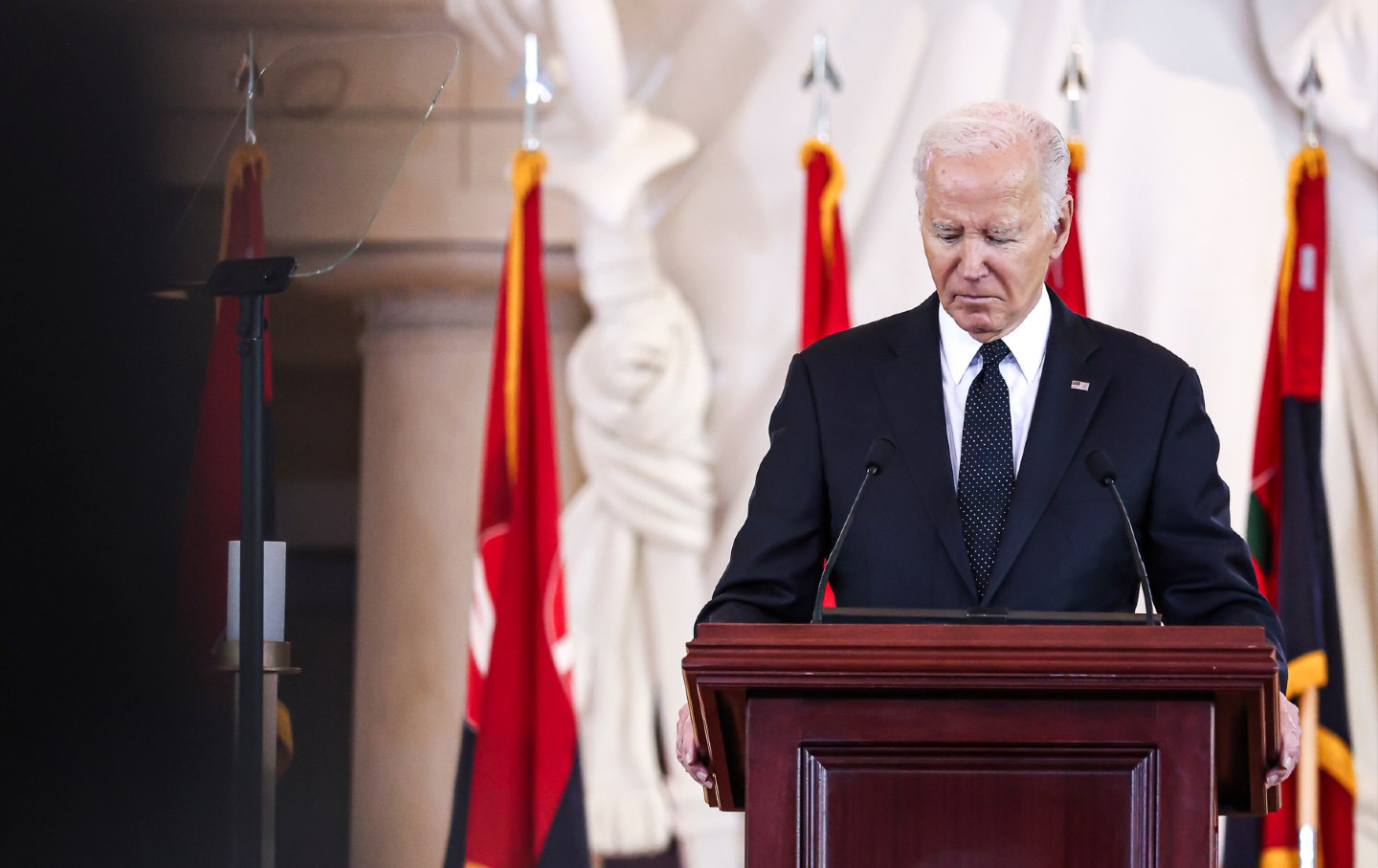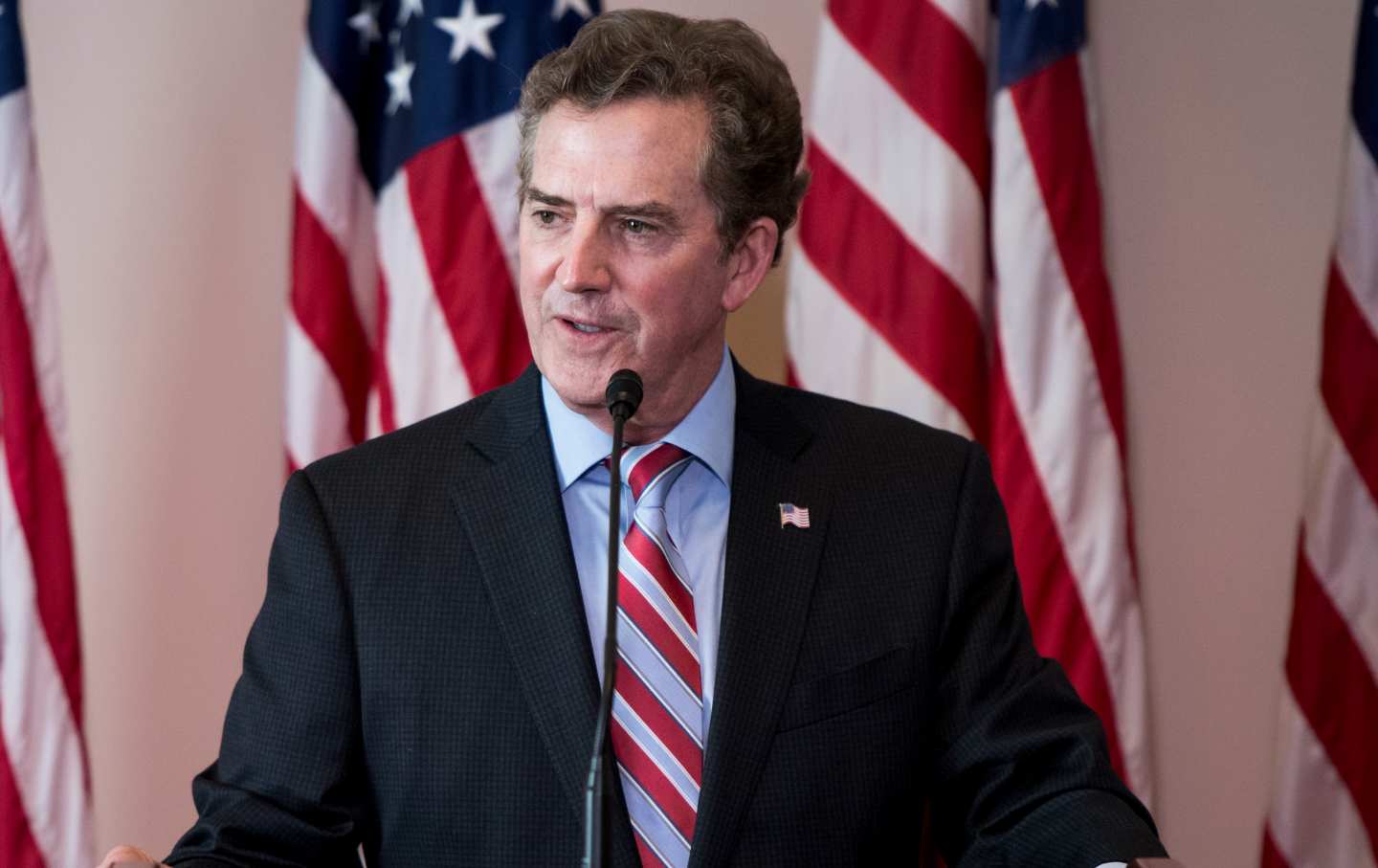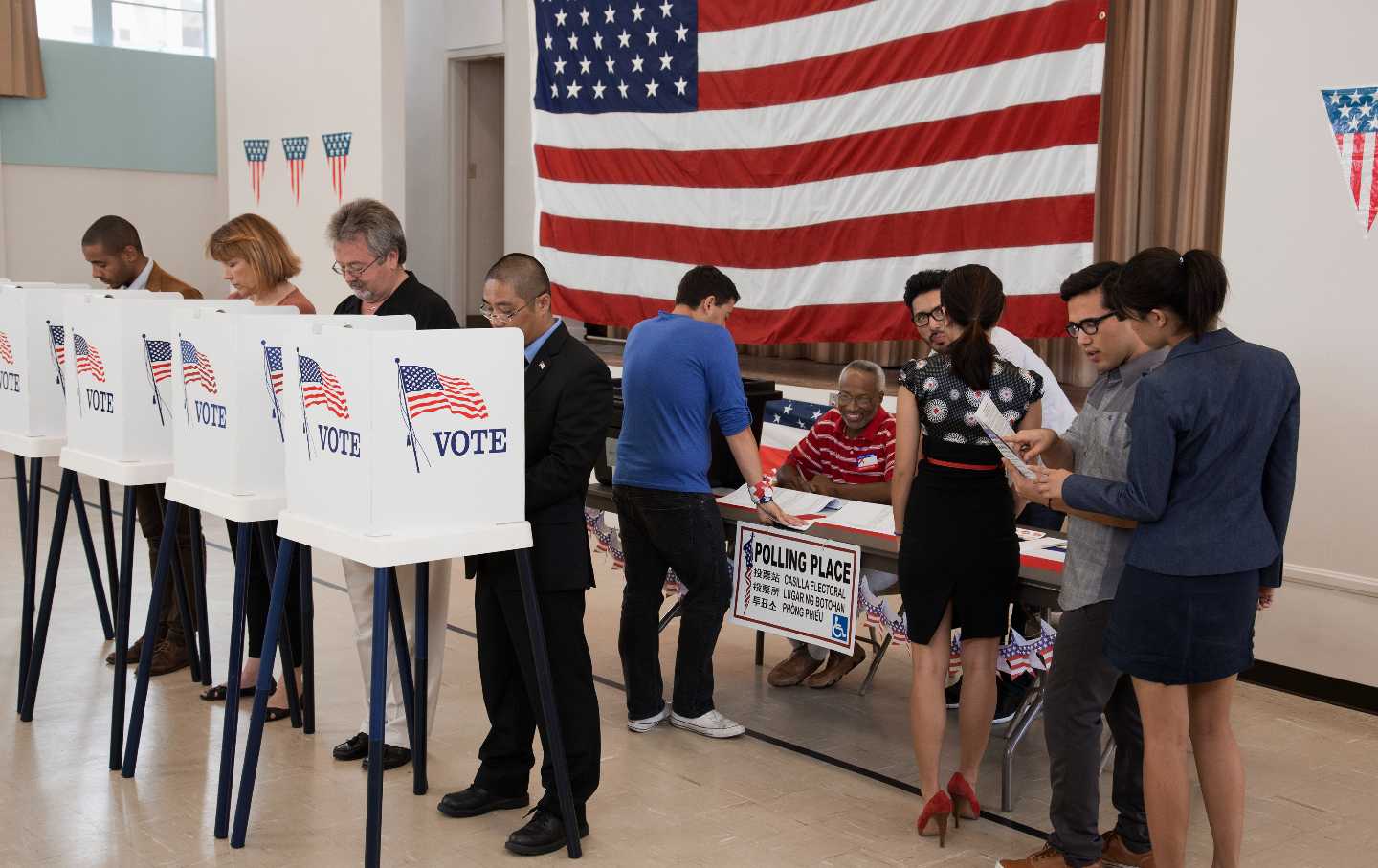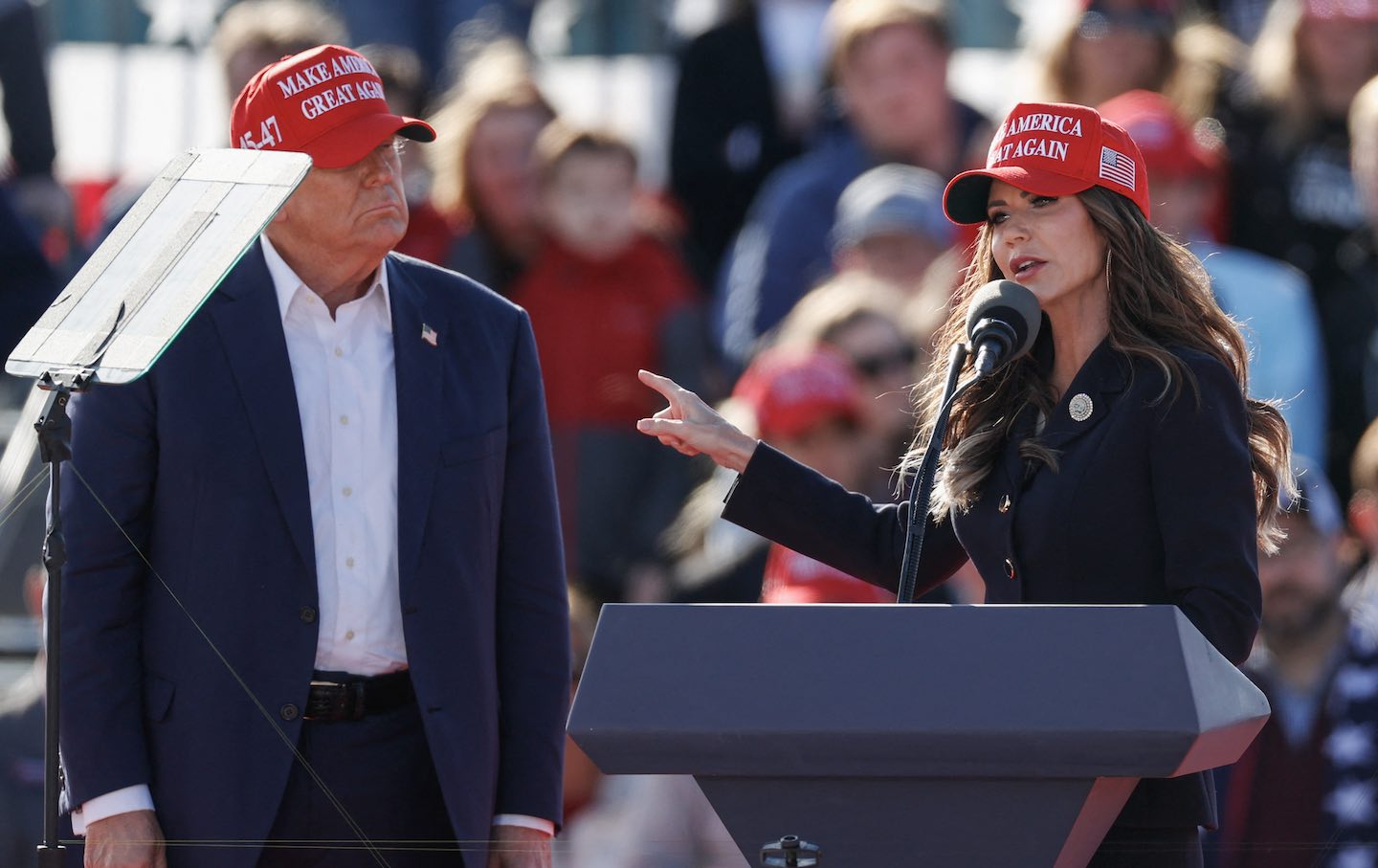Why Young People in Argentina Backed Far-Right President-Elect Javier Milei
Young voters helped deliver a shocking first-place finish for Milei in the August open primaries, and almost 70 percent backed him in the November election.

Before Javier Milei won the presidency of South America’s second-largest economy in a runoff against Sergio Massa, the center-left candidate from the ruling Peronist party, Argentina was consumed by the presence of another electrifying figure: Taylor Swift.
Swift’s Eras Tour landed in Buenos Aires the week before the presidential election, and indeed her final show in the city on November 12 conflicted with the last debate between Milei and Massa. In the days prior to her arrival in the Nuñez neighborhood of Buenos Aires, where she was set to perform, pink posters began to appear.
Inspired by Swift’s opposition to Marsha Blackburn in the 2018 Tennessee US Senate election and support for Joe Biden in the 2020 US presidential election, some fans of Swift had printed and plastered “Swiftie No Vota Milei” (Swifties Don’t Vote for Milei) on the sides of bus stops and construction sites. On the bottom of the posters, the parallel was made even more explicit with a hashtag “#MileiEsTrump” (Milei Is Trump). Some even more creative fans toyed with the assignment, producing photoshopped versions of Swift’s Era’s tour posters to preemptively celebrate Massa’s soon-to-be Presidential Era Tour.
Local and international outlets, including the German and French national broadcasters, ran with the story; the mix of popular culture, international fandom, and global politics proved to be irresistible. In similar fashion, earlier this month, a New York Times headline proclaimed, “The New Enemies of Argentina’s Far Right: Swifties and the BTS Army.”
The only problem? In Argentina, young people flocked to Javier Milei and his far-right party. Voters under the age of 29 delivered a shocking first-place finish for Milei in the August open primaries, and then later a whopping 11-point victory in the runoff. Almost 70 percent of young voters backed Milei in the November election (with surveyed men demonstrating a slightly greater preference for him than their female peers).
So important and central was the youth vote to Milei’s campaign that in his unprecedented endorsement of the far-right firebrand, the neoliberal former president Mauricio Macri, whose center-right party failed to make the runoff, called on his fellow party members “to have the humility to follow the youth… They have made their decision and they deserve our support.”
Of course, in a country with nearly 140 percent annual inflation, 60 percent of youth falling below the poverty line, and the average income having dropped consistently in the last decade to around $450 a month, it’s unsurprising that so many young voters were sick of the incumbent Peronist party. This financial crisis also helps to explain why the attempts to leverage Swift’s popularity for Massa’s presidential campaign fell flat.
The most obvious forces of American imperialism in Argentina, such as the ones that demand the devaluation of the peso, or back anti-Peronist dictatorships, also have a softer cultural face that looks something like sold-out Taylor Swift concerts. Agustina, a 25 year-old legal assistant from the Buenos Aires working-class suburbs, explained to me that in her experience, while “the American middle class loves America, the Argentine middle class hates their own country. They want to be Americans.” The combination of hard and soft imperial technologies can encourage many young Argentines to want to be anything but. Indeed, 70 percent of young Argentines say they want to emigrate.
Milei embraced this dejection and offered an anti-patriotic nationalism. He argued that the country had fallen into despair, decay, and impoverishment for decades—if not more than a century—and that Argentina ought to return to its 19th-century liberal, free-trading principles. It was once one of the wealthiest countries in the world, he said, and should still be a First World power, but instead its currency is worth less than “excrement.” During the first presidential debate, Milei proclaimed that “in 50 years we will be the world’s biggest shanty town” if Argentina continues on its current path. “But if you give me 20 [years, we will be like] Germany. If you give me 35: the United States.”
The self-proclaimed anarcho-capitalist’s signature policy, famously, is his promise to do away with the Argentine peso, shut down the nation’s Central Bank, forgo monetary sovereignty, and adopt the US dollar as Argentina’s legal tender. His campaign aides and allies often donned MAGA hats and “Don’t Tread on Me” flags, and oversize cardboard US $100 bills plastered with Milei’s face were a typical sight at rallies.
Beyond dollarization, other parts of Milei’s platform make plain his wannabe-American political visions. He has called for the right to bear arms (Argentina does not have anything like the Second Amendment, and most other candidates, even those on the right, have opposed this proposal) and replacing the public education system with charter schools and vouchers (another policy not backed by the the traditional center-right party); has claimed that climate change is a communist hoax; regularly invokes the notion that the state participates in pedophilia; hopes to orient the country toward the United States and Israel and away from China and Brazil, its biggest trading partners; wants to turn the clock back on abortion rights; has questioned if Biden won the US presidential election in 2020 and asserted baselessly that fraud has occurred throughout his country’s own electoral process.
It is unsurprising that his out-of-the-ordinary hairdo and career as a television personality have elicited comparisons to Donald Trump, a likeness he has proudly embraced. Tip O’Neil’s famous quip has been turned on its head. No longer is all politics local; today, all politics are global. In August, shortly after winning the primaries, Milei sat down for a one-on-one interview with Tucker Carlson. And soon after Milei won, Trump took to social media to proclaim that it was time to “Make Argentina Great Again!”
Popular
“swipe left below to view more authors”Swipe →If the left-wing Pink Tide first came, and returned, to Latin American politics championing a vision of a proud Third World nationalism, solidarity, and integration, it is unsurprising that the present right-wing riptide in the region offers a different vision, one of self-loathing, and a shift in orientation away from countries with shared histories and languages and toward global hegemons and international music stars.
On Sunday night, before he took the stage to proclaim victory, a member of Milei’s team switched out the podium’s placard. In lieu of the hotel’s logo, or that of his party, a different image appeared: a newly designed seal of the office of the Argentine president-elect, with a sketch of the Casa Rosada (Argentina’s White House equivalent) in the middle.
Argentine media immediately picked up on the parallels. A news anchor explained the seal to an unfamiliar audience. “It is an idea based…or copied from an American tradition. In Argentina we always used our patriotic seal. What did Milei do? Nothing with the Patriotic Seal. ‘Let’s make our own new seal!’ Oriented towards where? The United States.”
Thank you for reading The Nation!
We hope you enjoyed the story you just read, just one of the many incisive, deeply-reported articles we publish daily. Now more than ever, we need fearless journalism that shifts the needle on important issues, uncovers malfeasance and corruption, and uplifts voices and perspectives that often go unheard in mainstream media.
Throughout this critical election year and a time of media austerity and renewed campus activism and rising labor organizing, independent journalism that gets to the heart of the matter is more critical than ever before. Donate right now and help us hold the powerful accountable, shine a light on issues that would otherwise be swept under the rug, and build a more just and equitable future.
For nearly 160 years, The Nation has stood for truth, justice, and moral clarity. As a reader-supported publication, we are not beholden to the whims of advertisers or a corporate owner. But it does take financial resources to report on stories that may take weeks or months to properly investigate, thoroughly edit and fact-check articles, and get our stories into the hands of readers.
Donate today and stand with us for a better future. Thank you for being a supporter of independent journalism.
Thank you for your generosity.
More from The Nation

The GOP Campaign to Sow Chaos at the Ballot Box Has Already Begun The GOP Campaign to Sow Chaos at the Ballot Box Has Already Begun
A new lawsuit filed against the state of Nevada by the Trump team and its friends in the RNC says a lot about how they plan to suppress the vote in November.

What Biden’s Holocaust Speech Ignored What Biden’s Holocaust Speech Ignored
The president’s ahistorical account of Gaza failed to acknowledge the discomfiting truth that brutalized communities can visit the same traumas on others.

Stormy Daniels Takes the Stand Stormy Daniels Takes the Stand
The trial isn’t about Trump’s bad behavior but committing business crimes to win an election. It’s a shame that Daniels’s story is being ruled largely irrelevant in the courtroom.

The Right’s Partners in Weaponized Policymaking The Right’s Partners in Weaponized Policymaking
In remarkably short order, Donald Trump has transformed from the face of a hard-right insurgency in the GOP to the caretaker of the party’s future. This change has been anything bu…

Protest Voting Is a Road to Nowhere Protest Voting Is a Road to Nowhere
The system may be deeply imperfect, but the stakes are too high to refuse to cast a ballot for Biden on principle.

Kristi Noem Is the Latest Republican to Learn You Can’t Out-Trump Donald Trump Kristi Noem Is the Latest Republican to Learn You Can’t Out-Trump Donald Trump
The South Dakota governor's attempt at mimicking the former president’s obstreperous public image has fallen disastrously flat.


